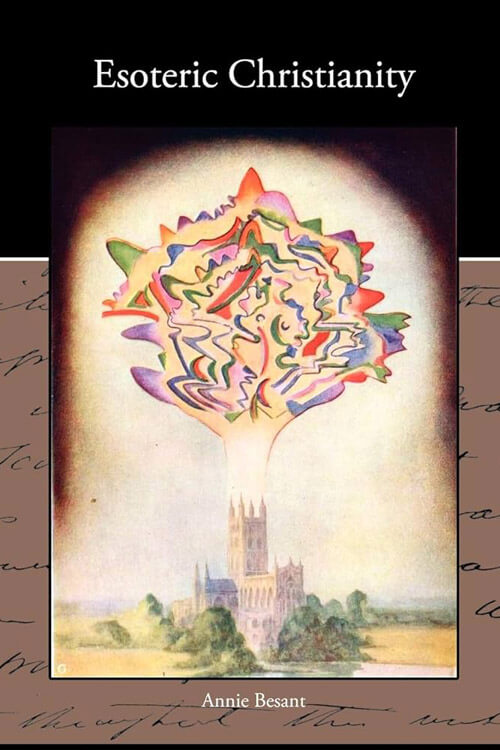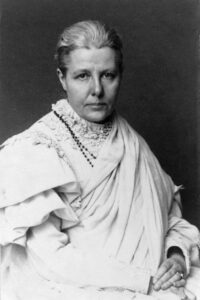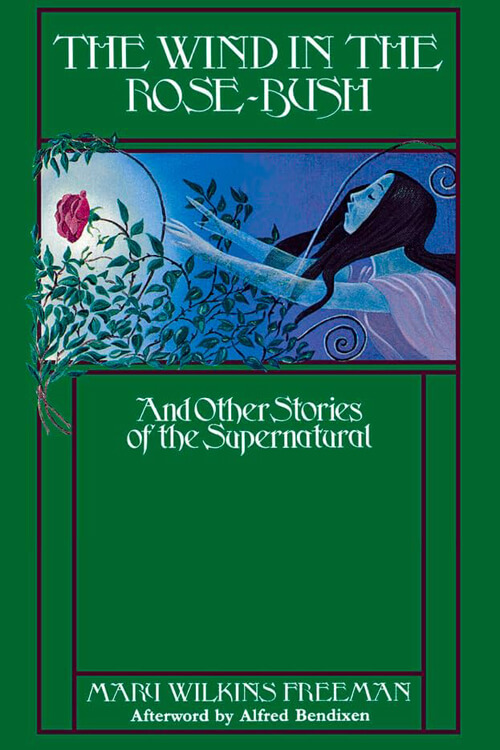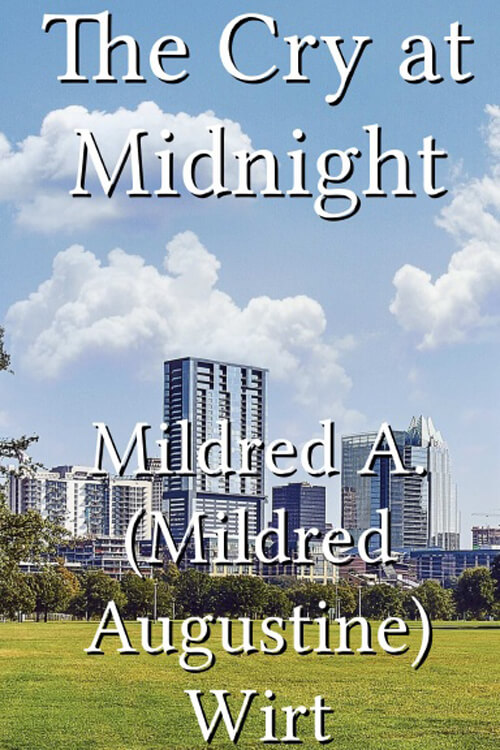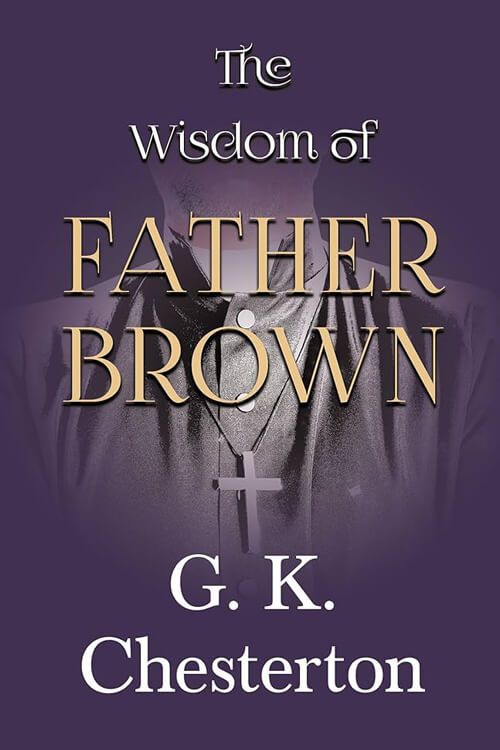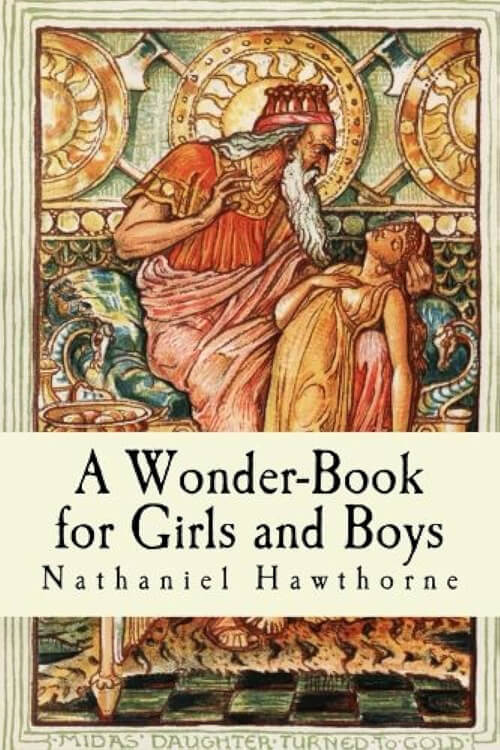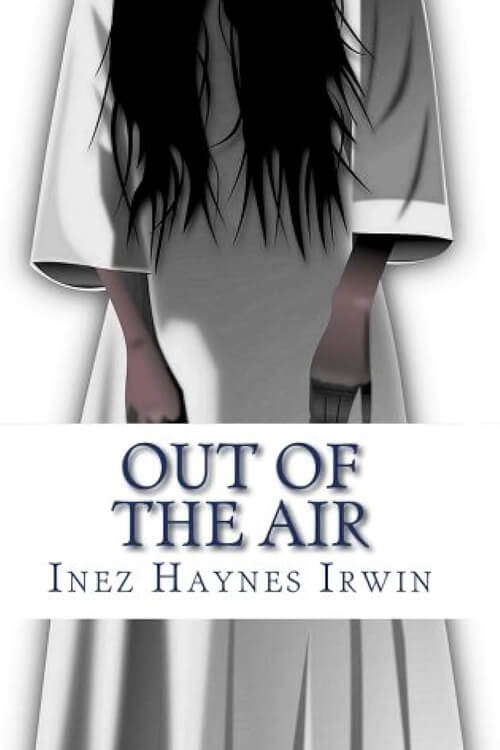
Esoteric Christianity or The Lesser Mysteries
The first question we have to answer is: What is the object of religion? They are given to the world by men wiser than the masses of the people on whom they are bestowed, and are intended to quicken human evolution. To do this effectively they must reach individuals and influence them. Now all men are not at the same level of evolution, but evolution might be figured as a rising gradient, with men stationed on it at every point. The most highly evolved are far above the least evolved, both in intelligence and character; the capacity to understand and to act varies at every stage. It is, therefore, useless to give to all the same religious teaching; that which would help the intellectual man would be entirely unintelligible to the stupid, while that which would throw the saint into ecstasy would leave the criminal untouched. If, on the other hand, the teaching be suitable to help the unintelligent, it is intolerably crude and jejune to the philosopher, while that which redeems the criminal is utterly useless to the saint. Yet all the types need religion, so that each may reach upward to a life higher than that which he is leading, and no type or grade should be sacrificed to any other. Religion must be as graduated as evolution, or else it fails in its object.
Next comes the question: In what way do religions seek to quicken human evolution? Religions seek to evolve the moral and intellectual natures and to aid the spiritual nature to unfold itself. Regarding man as a complex being, they seek to meet him at every point of his constitution, and therefore to bring messages suitable for each, teachings adequate to the most diverse human needs. Teachings must therefore be adapted to each mind and heart to which they are addressed. If a religion does not reach and master the intelligence, if it does not purify and inspire the emotions, it has failed in its object, so far as the person addressed is concerned.
Not only does it thus direct itself to the intelligence and the emotions, but it seeks, as said, to stimulate the unfoldment of the spiritual nature. It answers to that inner impulse which exists in humanity, and which is ever pushing the race onwards.
Read or download Book
Annie Besant
Annie Besant (1 October 1847 – 20 September 1933) was a British socialist, theosophist, freemason, women’s rights and Home Rule activist, educationist, and campaigner for Indian nationalism. She was an ardent supporter of both Irish and Indian self-rule. She became the first female president of the Indian National Congress in 1917.
For fifteen years, Besant was a public proponent in England of atheism and scientific materialism. Besant’s goal was to provide employment, better living conditions, and proper education for the poor. She became a prominent speaker for the National Secular Society (NSS), as well as a writer, and a close friend of Charles Bradlaugh. In 1877 they were prosecuted for publishing a book by birth control campaigner Charles Knowlton. Thereafter, she became involved with union actions, including the Bloody Sunday demonstration and the London matchgirls strike of 1888. She was a leading speaker for both the Fabian Society and the Marxist Social Democratic Federation (SDF). She was also elected to the London School Board for Tower Hamlets, topping the poll, even though few women were qualified to vote at that time.
In 1890 Besant met Helena Blavatsky, and over the next few years, her interest in theosophy grew, whilst her interest in secular matters waned. She became a member of the Theosophical Society and a prominent lecturer on the subject. As part of her theosophy-related work, she traveled to India. In 1898 she helped establish the Central Hindu School, and in 1922 she helped establish the Hyderabad (Sind) National Collegiate Board in Bombay (today’s Mumbai), India. The Theosophical Society Auditorium in Hyderabad, Sindh (Sindh) is called Besant Hall in her honor. In 1902, she established the first overseas Lodge of the International Order of Co-Freemasonry, Le Droit Humain. Over the next few years, she established lodges in many parts of the British Empire. In 1907 she became president of the Theosophical Society, whose international headquarters were, by then, located in Adyar, Madras, (Chennai).
Besant also became involved in politics in India, joining the Indian National Congress. When World War I broke out in 1914, she helped launch the Home Rule League to campaign for democracy in India, and dominion status within the British Empire. This led to her election as president of the Indian National Congress, in late 1917. In the late 1920s, Besant traveled to the United States with her protégé and adopted son Jiddu Krishnamurti, who she claimed was the new Messiah and incarnation of Buddha. Krishnamurti rejected these claims in 1929. After the war, she continued to campaign for Indian independence and the causes of theosophy, until she died in 1933.
Early life
Annie Wood was born on 1 October 1847 in London, the daughter of William Burton Persse Wood (1816–1852) and his wife Emily Roche Morris (died 1874). Her father was English, attended Trinity College Dublin, and attained a medical degree; her mother was an Irish Catholic. Her paternal grandfather Robert Wright Wood was a brother of Sir Matthew Wood, 1st Baronet.
Annie’s father died when she was five years old, leaving a son, Henry Trueman Wood, and one daughter. Her mother supported Henry’s education at Harrow School, by running a boarding house there. Annie was fostered by Ellen Marryat, sister of the author Frederick Marryat, who ran a school at Charmouth, until age 16. She returned to her mother at Harrow self-confident, aware of a sense of duty to society, and under the influence of the Tractarians. As a young woman, she was also able to travel to Europe.
In the summer of 1867, Annie and her mother stayed at Pendleton near Manchester with the radical solicitor William Prowting Roberts, who questioned Annie’s political assumptions. In December of that year, at age 20, Annie married the cleric Frank Besant (1840–1917), younger brother of Walter Besant, an evangelical, serious Anglican.
Failure of the marriage
The Rev. Frank Besant was a graduate of Emmanuel College, Cambridge, ordained priest in 1866, but had no living: in 1866 he was teaching at Stockwell Grammar School as second master, and in 1867 he moved to teach at Cheltenham College as assistant master. In 1872, he became vicar of Sibsey in Lincolnshire, a benefice in the gift of the Lord Chancellor—who was Lord Hatherley, a Wood family connection, son of Sir Matthew Wood, 1st Baronet. The Besant family, with their two children, Arthur and Mabel, moved to Sibsey, but the marriage was already under strain. As Annie wrote in her Autobiography, “We were an ill-matched pair”.

